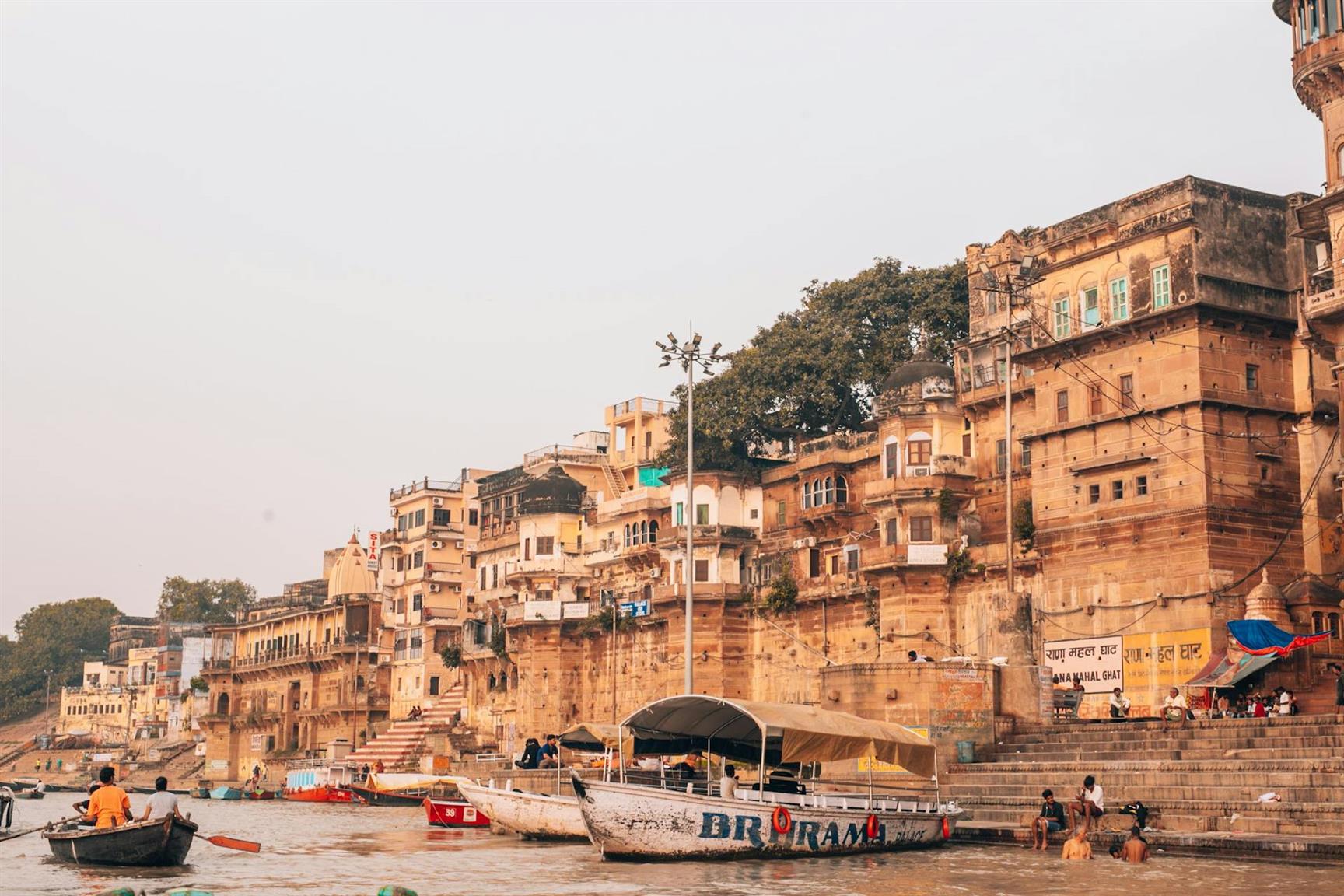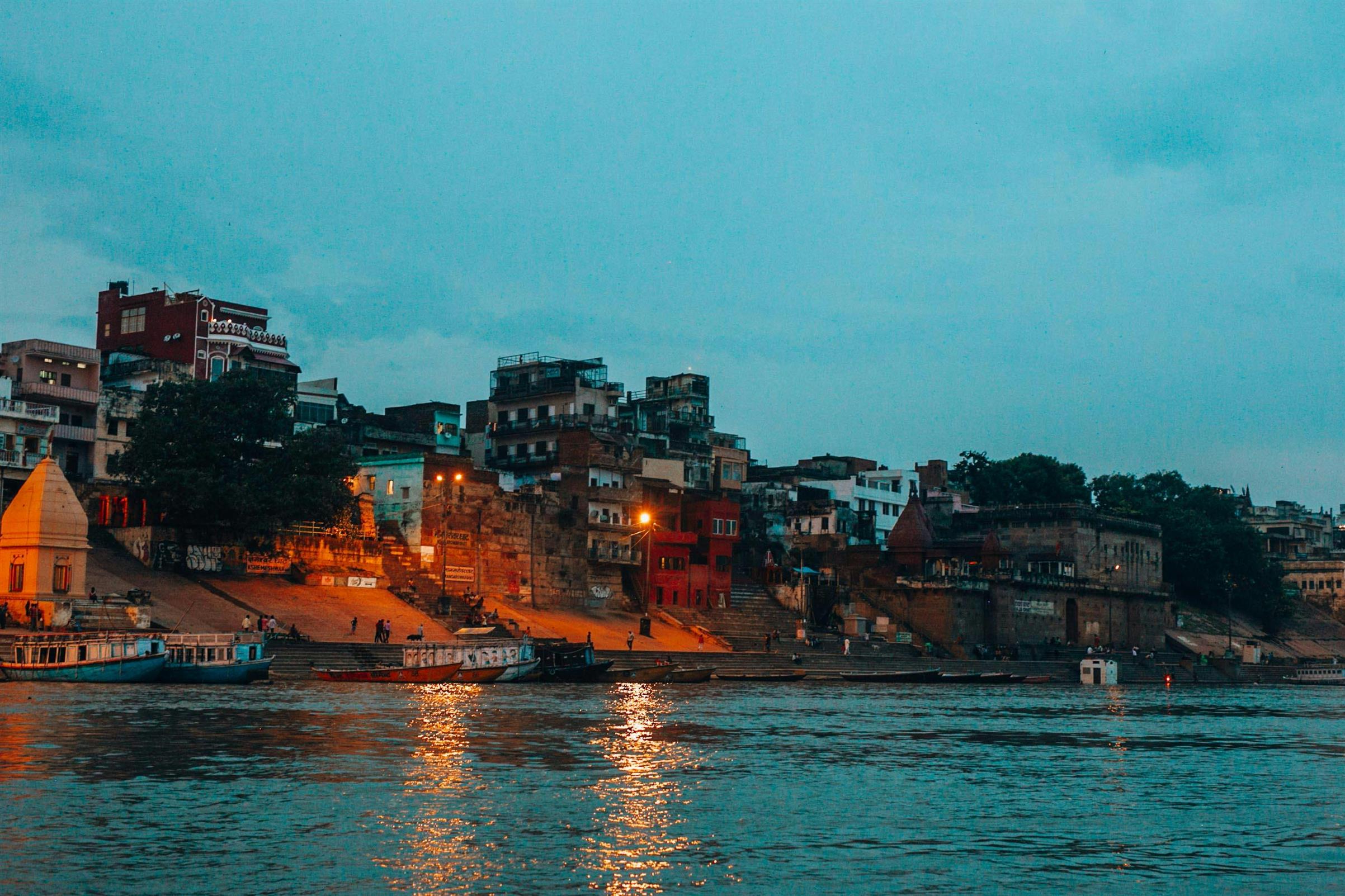1. Religious Significance:
Varanasi is considered the holiest city in Hinduism. It is believed that dying in Varanasi and being cremated on the banks of the Ganges River grants moksha (liberation from the cycle of birth and death).
The city is home to the Kashi Vishwanath Temple, dedicated to Lord Shiva, one of the most revered temples in India. Pilgrims from all over the country visit to offer prayers and seek blessings.
Ganga Aarti is a daily ritual held at Dashashwamedh Ghat, where devotees gather to witness a grand evening ceremony that involves the offering of fire to the river, accompanied by chanting and music. This spectacular event attracts thousands of visitors every evening.
Manikarnika Ghat, one of the main ghats in Varanasi, is known for being a sacred cremation ground, where funeral pyres burn continuously. Many believe this ghat holds special religious significance for those seeking salvation.
2. Historical and Cultural Heritage:
Varanasi has been a center of learning and culture for centuries. It was an important place for scholars, poets, and philosophers, with a rich tradition of Vedic learning and Indian classical music.
The city was historically part of the ancient Magadha Kingdom and later flourished under the rule of various empires, including the Mauryas, Guptas, and the Mughals.
Varanasi is home to many ancient temples, mosques, and shrines, reflecting its diverse cultural and religious influences over the centuries. The city's architecture, particularly the temples and ghats, showcase a blend of Hindu, Buddhist, and Islamic styles.
The Banaras Hindu University (BHU), founded in 1916, is one of the oldest and most prestigious educational institutions in India. It plays a significant role in preserving and promoting the rich cultural heritage of Varanasi.
3. The Ganges and the Ghats:
The Ganges River is the lifeblood of Varanasi, and its ghats (steps leading to the river) are among the most iconic features of the city. There are over 80 ghats in Varanasi, each with its own significance.
The ghats are not only places of worship but also offer a unique experience for visitors who can take boat rides along the river, offering a glimpse of the rituals, the vibrant life, and the sacred ambiance of the city.
Early morning boat rides on the Ganges offer an unforgettable view of Varanasi’s ghats, as the sun rises over the river and the first prayers of the day are offered. Visitors can witness devotees performing bathing rituals, making offerings, and chanting sacred hymns.
4. Spirituality and Yoga:
Varanasi is deeply associated with spirituality, and many come to the city for spiritual retreats and to deepen their understanding of Hindu philosophy and meditation.
The city offers a variety of opportunities for spiritual practices, including yoga and meditation. Many ashrams and spiritual centers, such as Parmarth Niketan, offer classes and teachings for both beginners and advanced practitioners.
The presence of various spiritual gurus, including famous figures like Swami Vivekananda and Ravidas, has contributed to the city’s global reputation as a center for spiritual awakening and enlightenment.
5. Art and Music:
Varanasi is renowned as the birthplace of Indian classical music. The city has a rich tradition of classical music, dance, and arts, attracting performers and scholars from across India and the world.
The city is particularly famous for its contribution to Hindustani classical music, with renowned musicians and families like the Benares Gharana leaving a lasting impact on music traditions.
Ravi Shankar, the famous sitar maestro, hailed from Varanasi, and the city continues to host classical music festivals, dance performances, and cultural events.
The Banaras Hindu University and various other institutions offer courses and programs to promote classical arts, making Varanasi a hub of cultural learning.
6. Cuisine:
Varanasi offers a unique and flavorful cuisine, known for its street food and traditional delicacies. The food in Varanasi is an intricate blend of Brahmin, Muslim, and Rajput influences.
Popular dishes include Kachori, Chaat (such as Tamatar Chaat and Pani Puri), Lassi (a yogurt-based drink), and Banarasi Paan (a chewable betel leaf preparation).
Varanasi is also known for its Banarasi sweetmeats, especially Rabri (a milk-based dessert) and Malaiyo, which is typically prepared in winter.
The narrow lanes of the old city are lined with vendors offering snacks and treats, which are an essential part of the Varanasi experience.
7. Varanasi and Hindu Pilgrimage:
Pilgrims from all over India visit Varanasi to perform religious rituals, especially to take a holy dip in the Ganges and to perform rituals for ancestors (known as shraddha).
The Kashi Vishwanath Corridor Project is an ongoing initiative to enhance the accessibility of the Kashi Vishwanath Temple and surrounding areas, making it easier for devotees to visit and worship.
Varanasi also holds a special place in Hindu mythology, being the city of Lord Shiva. Many believe that Lord Shiva’s divine presence is ever-present in the city.
8. Festivals:
Varanasi is known for its vibrant celebrations of festivals, especially those with religious significance. Major festivals include:
Dev Deepawali: The festival of lights that marks the celebration of Lord Shiva’s victory over demon Narakasura. The city is illuminated with thousands of lamps, and the ghats are adorned with lights, creating a magical atmosphere.
Holi: The festival of colors is celebrated with great enthusiasm, with crowds of people engaging in the playful throwing of colors and celebrating the arrival of spring.
Diwali: The festival of lights is marked by prayers, lighting diyas (oil lamps), and special celebrations at the ghats and temples.
Mahashivaratri: Celebrated in honor of Lord Shiva, this is one of the most important festivals in Varanasi, with night-long prayers, chants, and rituals.
9. Modern Varanasi:
While Varanasi is deeply rooted in its ancient traditions, it is also modernizing rapidly. The city has seen developments in infrastructure, tourism, and technology, with improved roads, transportation, and services for visitors.
The Varanasi International Airport connects the city to major domestic and international locations, bringing in more tourists and pilgrims each year.






